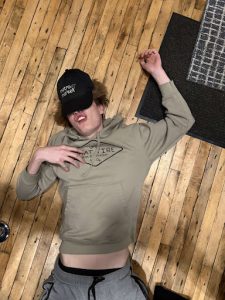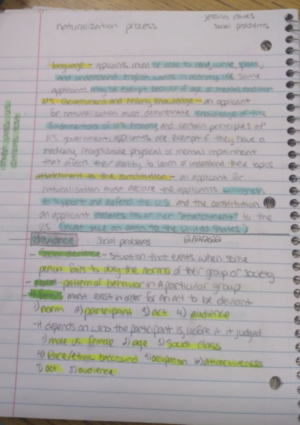Better Sleep Means Better Grades? Yes.
October 21, 2022
If you think about it, most people don’t know anyone that does not enjoy sleeping in one way or another. Most teenagers that work more than 20 hours a week feel the effects of the lack of sleep this may bring, myself included. It is believed that pushing school later into the day will help the work ethic of thousands upon thousands of teenagers. It is recommended that the Stevens Point School board look into having the day start later, where the elementary schools start earlier and the High school starts later.
Many teenagers have melatonin levels that increase later at night than other children or adults, causing them to sleep later and wake up later. “Most preteens require 10 to 12 hours of sleep per night, but this begins to change as their circadian rhythms begin to reset, and the number of hours they require is reduced,” says Mary Lou Gavin, senior medical editor at KidsHealth.org and president of the American Academy of Pediatrics’ Delaware Chapter (AAP). “While teens require only 8.5 to 9.5 hours of sleep per night, many do not feel drowsy until later in the evening.”
Following the Youth Risk Behavioral Surveillance study of 2014 from the MMWR/CDC, 68% of high school students sleep less than eight hours on a typical school night (Kann et al. 2014). According to Maida Chen, director of the pediatric sleep disorder unit at Seattle Children’s Hospital, 90% of their preteen/teen patients had the same problem: “insufficient sleep.” she claims early school start times are a significant contributor to this issue. To align with “the biological sleep rhythms of adolescents, whose sleep-wake cycles begin to shift up to two hours later at the start of puberty,” the AAP (2014) recommends that high schools delay starting classes until 8:30-9:00 a.m.
According to an AAP recommendation issued just before the start of the 2014 school year, “adolescents who do not get enough sleep frequently suffer physical and mental health problems.” “However, getting enough sleep each night can be difficult for teens whose natural sleep cycles make falling asleep before 11 p.m. difficult and who have a first-period class at 7:30 a.m. or earlier the next day.”
According to the AAP, only around 15% of high schools in the United States begin at 8:30 a.m. or later. “Chronic sleep loss in children and adolescents is one of the most common and readily fixable public health issues in the United States today,” says Judith Owens, the AAP recommendation’s lead author and director of sleep medicine at Children’s National Medical Center in Washington, D.C. “Adolescents who get adequate sleep are less likely to be overweight or depressed, are less likely to be involved in car accidents, and have better grades, higher standardized test scores, and an overall better quality of life.” Delaying the start of school is one important aspect that can help teenagers obtain the sleep they need to grow and learn.” Owens says 9 a.m. would be an ideal start time.
“A lot of times, I will get fewer than 7 hours of sleep, with other nights getting less than 5,” says Krewe (Katie) Kvatak, a junior at SPASH. Katie has had to rely on energy drinks from the gas station several times a week just to get through the day. On the other hand, Owen Creamer, a coworker of mine at Taco Bell and a home-schooled 17-year-old, says, “very often I will get like 8+ hours of sleep a night, though sometimes I’ll get less, but not too regularly.” It just so happens that Owen gets to pick his routine, and comparing the two teenagers, it is evident that school structure plays a significant role in their sleep routine.
In conclusion, it has been stated by thousands of studies and students that pushing high school later into the day would help a ton with both work ethic and mental health. And so, the Stevens Point School board should look into having the day start later, where the elementary schools start earlier and the High school starts later.






































































